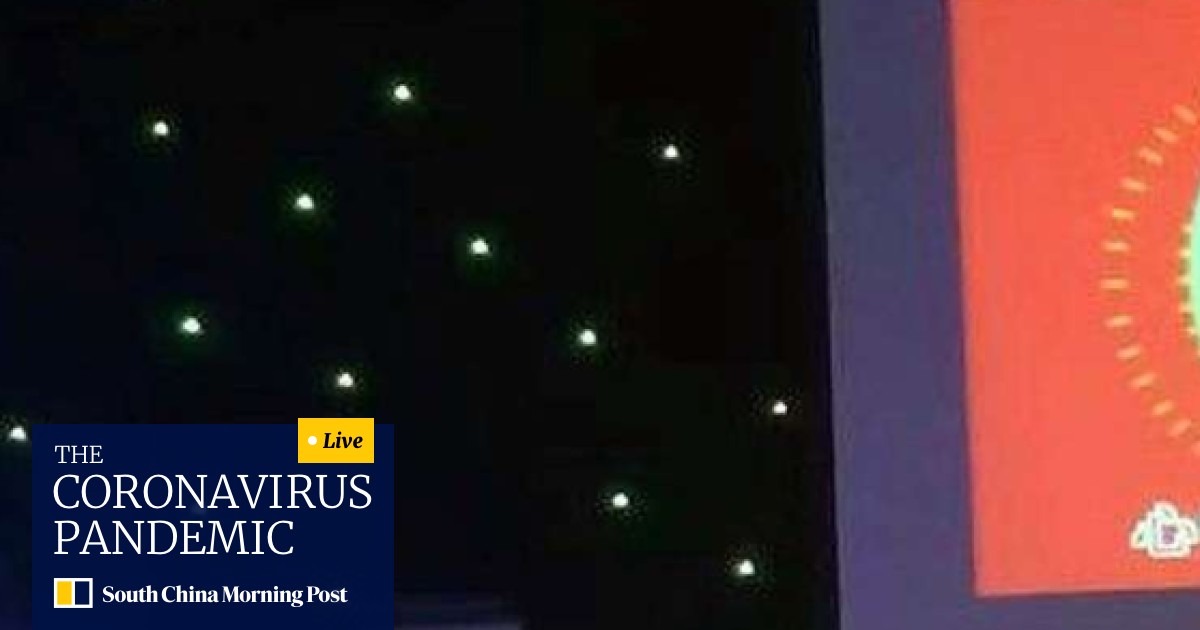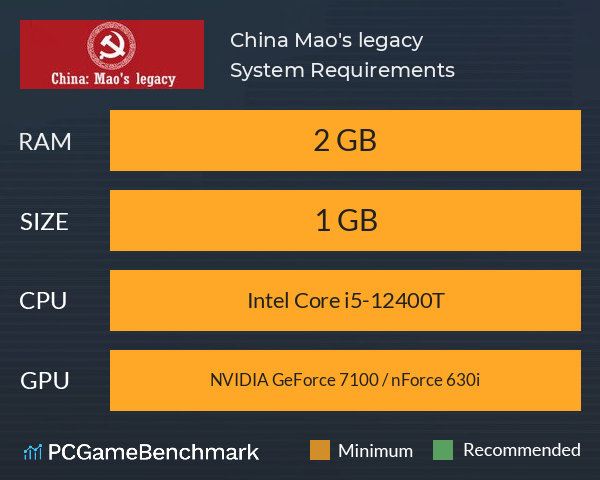
Mao Zedong has a complex legacy, neither wholly good nor wholly bad. On the one hand, Mao’s revolution achieved China’s sovereignty, and his land reforms bequeathed land to a formerly landless peasantry. On the other hand, Mao ran an authoritarian government that quashed dissidence and caused years of terror, suffering, and famine for its people. First episode in Political Simulators Unite! Playthrough series of China: Mao's Legacy. Please subscribe, like and share!Steam Curator page: https://store. In China after Chairman Mao, China had a period of post Maoism and was moving away from Chairman Mao to a more modernized China. Even though Mao Zedong had a hand in creating China and unifying, China in it is early years up to the Chinese Cultural revolution. His downturn or his bad Mao days were after the Cultural Revolution.
Year 1976, the stormy Cultural revolution has died down, hard times of hongweibing and public critics are coming to an end. Old and sick Mao Zedong will soon leave China to his comrades from CPC. The Cold War is coming into a new phase and only you will determine what will China become and what place will it take in the world.
— Lead the People's Republic of China from 1976 to 1985
— Restore relations with the USSR and compete for the leadership in the socialist camp or become the conductor of USA's interests or forge your own path without looking at others
— Build a strong planned economy, lead the market reforms and invite investors from all over the world or fulfill communist's dream about automated state plan - the future of Chinese economy is in your hands
— Expand your influence, become the master of the Asian region, reach for the Europe - the restless world of Cold War gives you a lot of opportunities
— Watch over the Party - politicians want to reach higher places, plot and conspire. Your fellow party members may become your helpful allies or deadly enemies
— Remember that your actions will determine the world by the end of the XX century - will the Soviet Union fall apart, will the socialist camp fall, will DPRK become an outcast country, will you repeat the glorious path of China or will you manage even better?
Asia
Even 40 years after his death, the Communist Party of China still feels the need for Mao Zedong to maintain its legitimacy. DW talks to sinologist Felix Wemheuer about the leader's legacy and current significance.
Born to a wealthy farmer in the Hunan province in 1893, Mao aimed to transform China into a communist state and succeeded in achieving his goal 1949, when he declared the People's Republic in Beijing's Tiananmen Square.
However, his reign of China was anything but smooth, with the country experiencing convulsions as a consequence of the leader's ill-conceived initiatives, which have led to the deaths of millions of people.
Still, 40 years after his death, Mao Zedong's presence remains impossible to escape in China, yet difficult to discuss. His corpse still lies in state in the center of Beijing, watched over by a giant portrait hanging on the Forbidden City in Tiananmen Square. While Mao is still officially venerated by the ruling CPC as the founder of modern China, some fear the party, in a bid to modernize its image, wants to play down his legacy.
Meanwhile, Mao has become a potent symbol for leftists within and without the ruling Communist Party who feel three decades of market-based reform have gone too far, creating social inequalities like poverty and graft.
In lauding Mao, they sometimes seek to put pressure on the current leadership and its market-oriented policies. In a DW interview, China expert Felix Wemheuer explains about Mao's record on both the domestic and foreign policy fronts and how his personality cult continues to play a role in present-day China.
Wemheuer: The CPC believes 'it cannot justify its legitimacy without Mao'
Mao's Legacy Chinese
DW: Could you tell us about Mao's journey from being the son of a wealthy farmer to the head of communist China?
Felix Wemheuer: We have to go back to the period immediately after the end of World War I. A major theme of the so-called 'May 4th Movement' of 1919 was the question of how to make China a modern nation while fending off Western imperialism. In this context, many intellectuals turned to communism and the Soviet Union.
The Treaty of Versailles and the disappointment caused by the pact, which transferred the control of the Shandong region (currently Shandong Province) to Japan, also contributed to the development.
Mao was also part of this movement and he founded the Communist Party of China (CPC) in 1921. Initially, he was only one of several leaders. But his successful strategy, of creating so-called liberated areas in the hinterland with guerilla bases and establishing a parallel state later propelled him to become the party's sole leader and the figurehead of the Chinese Communist revolution.
It also helped him establish his personality cult and image as a person who developed the right strategy to implement the Chinese revolution, which ultimately brought the CPC to power.
China: Mao's Legacy For Mac Download

The Cultural Revolution began in 1966 when Mao declared a class war
The takeover of power by the CPC under Mao's leadership was followed by two catastrophes resulting in the loss of millions of lives. How do you view these disasters and Mao's responsibility for causing them?
The two catastrophes are the Great Leap Forward (1958-61) and the Cultural Revolution (1966-76). The Great Leap Forward was part of an ill-conceived industrialization program, with the help of which China wanted to quickly modernize and catch up with the West. Mao pursued this goal along with the establishment of a communist society. But it failed miserably and ended in a catastrophe. His aim certainly was not to have people starve to death, although after the famine broke out he did little to save as many as possible.
During the Cultural Revolution days, however, Mao applied some of the lessons learned from the failure of the Great Leap Forward, thus ensuring that the nation's economy did not entirely collapse. There was a small economic slump at the start of 1967, but agriculture and industry remained relatively stable during that time. Despite party infighting and political chaos, the economy did not once again collapse.
DW recommends
The paradox in Mao's attitude towards violence is that at the start of each of his big campaigns, he always incited violence against landowners and party cadres. But at the same time, when things started to get out of hand, he was the only one who could stop them. That led many victims to a paradoxical situation where they could only be saved by Mao.

Even Xi Zhongxun, the father of the current President Xi Jinping, was one of the victims of the Cultural Revolution. Almost all members of the current leadership come from families that suffered during the revolution. As a result, these people have many reasons to say Mao was bad. But they don't do that because the party is still of the view that it cannot justify its legitimacy without Mao.
China Mao's Legacy Steam
How do you see Mao's record on the foreign policy front?
Mao scored his most lasting successes in foreign policy. Although the nationalist Kuomintang (KMT) government was recognized as one of the victors of World War II and accorded a permanent seat in the UN Security Council, the KMT remained very weak and was unable to control either Xinjiang or Tibet. But after the Communist takeover in 1949, China was able to re-establish its control over a territory that was in accordance with the borders of the Qing Dynasty.
The West initially had to give up all its claims and then China was able to assert its independence from Soviet Union's policies. Following the escalation of the Sino-Soviet conflict, Mao made a strategic pivot, normalizing relations with the US in 1972 under President Richard Nixon. This put an end to the bipolarity of the Cold War in Asia, where China and the US joined hands in their opposition against the Soviet Union.
In the early 1960s, it was considered outrageous in the world communist movement to publicly challenge the Soviet leadership. And the Soviet Union, for its part, tried to bring together all eastern European nations to oppose China. Moscow succeeded in its mission, with the exception of Albania, but China was able to gain new allies, particularly in Africa.
What role does Mao play in Xi Jinping's China?
With his anti-corruption campaign, President Xi - similar to Mao - has positioned himself as someone who is above the party. Xi presents himself as a leader who - in the interests of the Chinese people - is willing to take on the party ruthlessly to cleanse it of corruption. Xi's pledges like vowing to crack down on both 'tigers' and 'flies' were also a page taken from Mao's book.
In general, we are currently seeing a trend towards strong men like Recip Tayyip Erdogan, Vladimir Putin and Donald Trump. And it is somehow fitting for Xi to be regarded as China's strongman. In my view, he wants to cultivate a Mao-like charisma without actually propagating Maoist content. So the idea of class struggle does not matter at all.
Nevertheless, maintaining stability and continuity is important for the party. And Mao is viewed in a much more positive light now than ten years ago. But discourse over his legacy has been more or less limited, portraying Mao as the leader who built a strong and rich China that was able to assert its importance on the international arena.
China Mao's Legacy
Felix Wemheuer is Professor of China-Studies at the University of Cologne and author of a biography on Mao Zedong, published in 2009.
